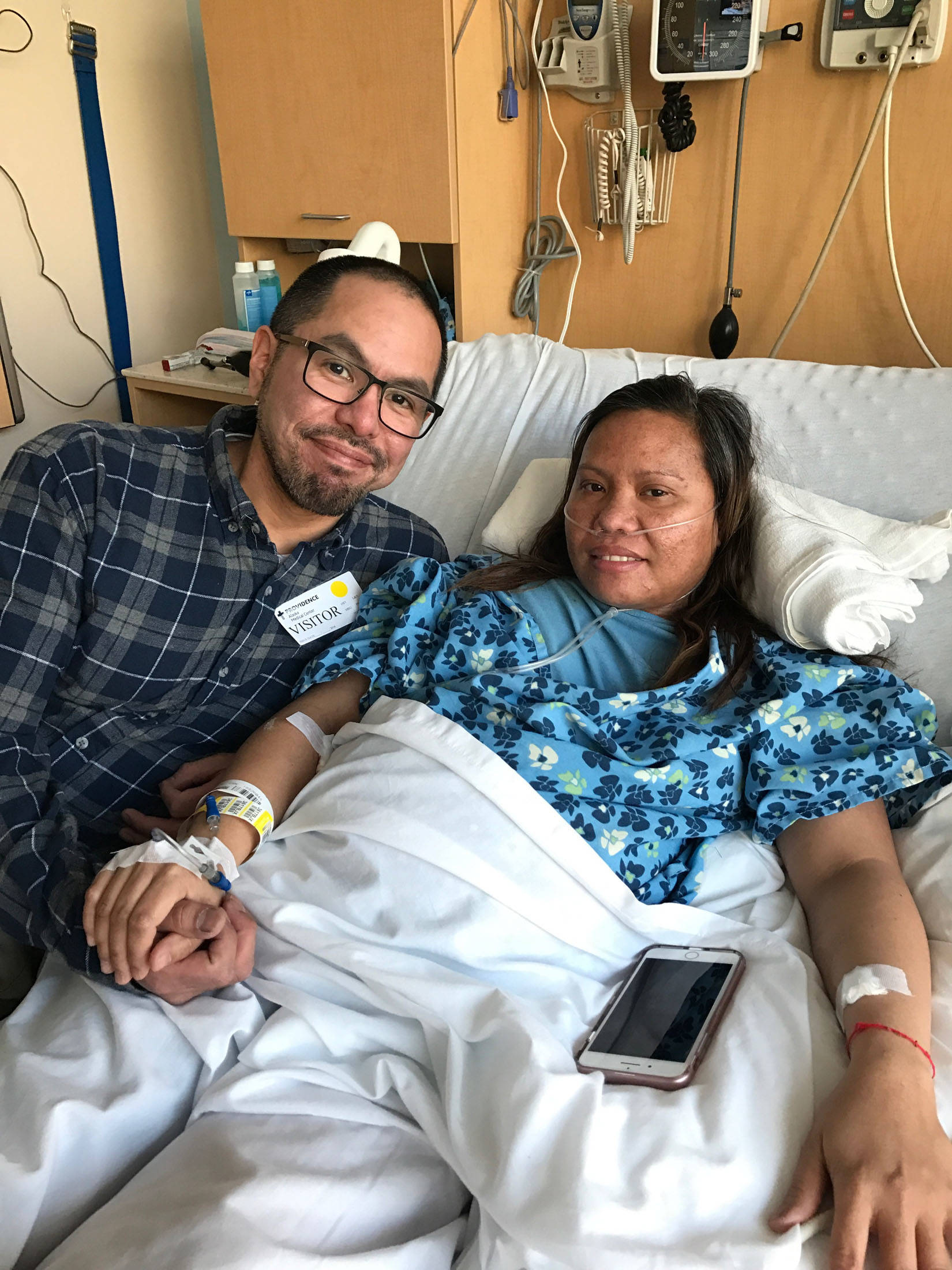Lorevie Rowe and John David have won a kind of lottery – but it’s one with odds even experts can’t agree on.
Rowe is pregnant with spontaneous identical triplets. The news agency Reuters estimates its chance as one in 200 million. Other estimates are as low as one in 60,000, according to the science journalism website Science Alert.
Either way, for a woman to become pregnant with triplets, one individual egg has to split three times, meaning it’s very rare. It’s even more rare when the pregnancy happens without medical help.
While the number of kids they’re having may have come as a surprise, Rowe’s pregnancy wasn’t.
“Lory was talking about (having a baby) for a while… our life settled so we decided to start trying… for one kid,” David said.
Rowe said via a text from David that it a took a few days for the news to sink in.
“We are both really overwhelmed and totally surprised,” she wrote, adding that they didn’t expect triplets “in their wildest dreams.”
Though both are positive, “the pregnancy hasn’t always been easy,” David said.
When Rowe was 23 weeks pregnant, she and David traveled from Juneau to Anchorage for one of their standard biweekly checkups at the Alaska Native Medical Center (ANMC). “Standard” doesn’t come close to describing what happened next. The checkup revealed that Rowe’s cervix was dilating, and she began to have contractions. The doctor at ANMC told David and Rowe that the boys would most likely be born that night and that they needed to be transferred to Providence Hospital right away.
“Everything went so smoothly up until that point,” David said. “It was only supposed to be a day trip (to the first appointment in Anchorage) so we didn’t even pack.”
At Providence Hospital, Rowe was given multiple drugs to stave off labor.
“It helped in the end,” David said.
They ran into difficulties more recently, too: Rowe is 4 feet 10 inches tall and before becoming pregnant weighed 90 pounds, David said. At 26 weeks (she’s now at 27) Rowe felt as though she couldn’t breathe. A checkup found that the oxygen concentration for her blood was only at 90 percent. Since then she has been put on oxygen.
“The boys are getting so big her diaphragm is just running out of space,” David said. Through all this David said that Rowe remains in high spirits, “even through the boys punching and kicking her when they get hungry.” All of them are healthy.
Once things calmed down enough, David returned to Juneau to get back to work and also take care of the couple’s “fur babies,” Chewy, a teacup Chihuahua and Pomeranian, and Daisy, a pit bull.
Rowe is 39 and was born and raised in the Philippines. She’s lived in Juneau for the past seven years. David is a year younger than Rowe and born and raised in town. His love for adventure has taken him all along the coasts of the U.S., but David said he “eventually always come(s) back to (his) stomping grounds.”
The two met while working at Juneau nursing home Wildflower Court back in 2012. Their similar active lifestyles and love for fly-fishing is “part of why we get along,” David said. Rowe’s luck with the fish helped too; one of their first dates was fishing.
“I think she could fish a puddle and she’d catch a salmon,” he said.
David plans to pass on the family tradition to the couple’s three boys, Lawrence Jacob, Logan James and Liam John.
Both Rowe and David have continued to work at Wildflower Court though the years, Rowe as a Certified Nursing Assistant and David as the kitchen manager. They’re making plans for a wedding soon.
Soon-to-be aunt Kasey Cox lives in California and understands the financial hardships of living in Juneau, Alaska.
“When you live in Juneau a paycheck only goes so far,” Cox said.
The cost of living in Juneau is 31 points higher than the national average of 100 points. Babies add to this financial burden immensely. David and Rowe are going to have triple the cost for everything. A baby goes through 10-15 diapers a day by some estimates, which means the triplets will go through, at a minimum, 210 diapers in one week and 10,950 in a year.
Since John’s return to Juneau, he has been working 5:30 a.m. to 6 p.m. seven days a week, he said. He’s also been busy prepping the couple’s singlewide trailer in Switzer Creek for the return of his family, ready to hop a plane to Anchorage, and Providence Hospital, as soon as necessary.
Rowe is now on bed rest at the Providence Hospital in Anchorage.
“The goal is to at least get her to 30 weeks,” David said. “She’s doing so great.”
Rowe’s time at the hospital on bed rest has been spent teaching herself how to knit; “she’s knitting lots of little booties for the boys,” David said. She doesn’t have any family members nearby in Anchorage and is trying to raise money to fly her mother from the Philippines for support now and after the babies are born.
The family’s main concern is uncertainty, partly financial. David’s sister, Cox, set up a GoFundMe account to help them out with initial expenses. To donate visit https://www.gofundme.com/john-and-lorys-growing-family.
“Think about it like this,” said David, who uses Reuters’ statistic about the frequency of spontaneous triplets. “If somehow all of the people on the planet became females, and then all of them became pregnant, only 37 of them would have this same pregnancy.”
“We are super excited!” Rowe wrote. “Both sides of the family are very excited as well! Every day is one step closer in meeting our three beautiful boys.”
Contact Capital City Weekly intern Mackenzie Fisher at mackenzie.fisher@capweek.com.

